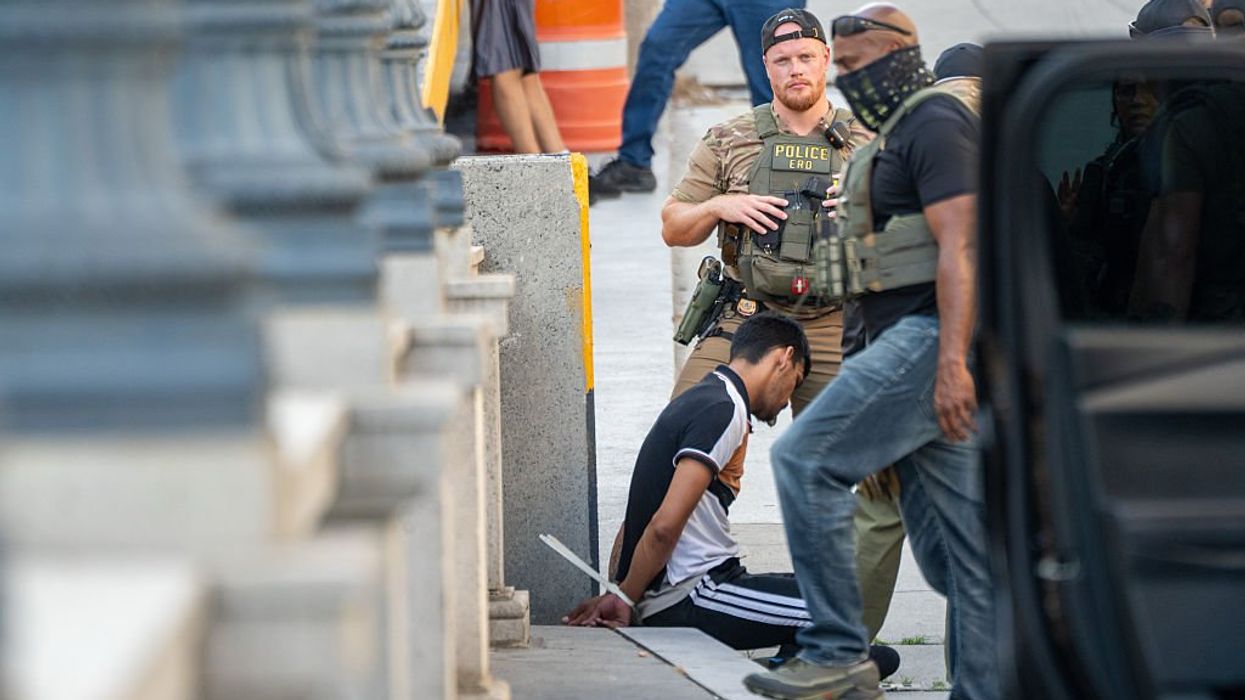Tomorrow marks the 23rd anniversary of the creation of the U.S. Immigration and Customs Enforcement (ICE). Created in the aftermath of 9/11, successive administrations — Republican and Democrat — have expanded its authority. ICE has become one of the largest and most well-funded federal law enforcement agencies in U.S. history. This is not an institution that “grew out of control;” it was made to use the threat of imprisonment, to police who is allowed to belong. This September, the Supreme Court effectively sanctioned ICE’s racial profiling, ruling that agents can justify stops based on race, speaking Spanish, or occupation.
A healthy democracy requires accountability from those in power and fair treatment for everyone. Democracy also depends on the ability to exist, move, and participate in public life without fear of the state. When I became a U.S. citizen, I felt that freedom for the first time free to live, work, study, vote, and dream. That memory feels fragile now when I see ICE officers arrest people at court hearings or recall the man shot by ICE agents on his way to work.
When the government seizes anyone without due process, it harms more than one person — it erodes the protections meant to safeguard us all. Challenging ICE’s mandate is our civic duty because of the harm it causes and because it corrodes our democratic values — values rooted in fairness and respect as essential parts of daily life. ICE’s operations lead directly to civic withdrawal and voter suppression. Agents conduct mass raids detaining citizens and non-citizens to meet a 3,000-per-day arrest quota, preventing people from any civic participation. Voting feels dangerous when going to work, school, or even waiting in a parking lot could lead to arrest. If ICE can raid houses of worship, what will stop them from targeting people in polling places — a threat that should alarm all of us. As a naturalized U.S. citizen who has experienced state violence, I know how fear shapes choices. In a state like Arizona, where elections are often decided by razor-thin margins, we cannot pretend an election is representative when fear keeps people from participating at all.
When ICE agents burst into my home in 2008 and took my parents, they continued a long practice of government policies that separate families and designate entire communities as “threats”—based on appearance, language, faith, or country of origin. From Japanese American incarceration to Muslim registry programs to today’s detention of Spanish-speaking people, the government has repeatedly used fear to police who belongs. As other immigrant justice experts have noted, and has been demonstrated through history, the targeting and dehumanization of immigrants is a hallmark of rising authoritarianism.
ICE’s defenders insist it keeps us safe. But safety built on intimidation and the threat of disappearance isn’t safety at all — it’s control. The majority of Americans reject the use of militarized federal forces to “fight crime and immigration,” according to an October NBC News poll. When the government rules through fear, it isn’t protecting us; it is weakening our democracy. True safety means taking our children to school, going to work, and voting without the threat of profiling, assault, or detention.
And I see reasons for hope: community members learning how to protect one another, young people protesting family separation, and school districts declaring themselves “safe zones” for undocumented students. These moments remind me that we all have a role in defending democracy.
This anniversary calls us to remember our darkest chapters — not to be bound by them, but to shift our direction towards a more just, free, and humane future. To protect our freedom, we must dismantle the machinery of fear. Standing together is the only way to safeguard our democracy and ensure we can live safe and fulfilling lives.




















Trump & Hegseth gave Mark Kelly a huge 2028 gift